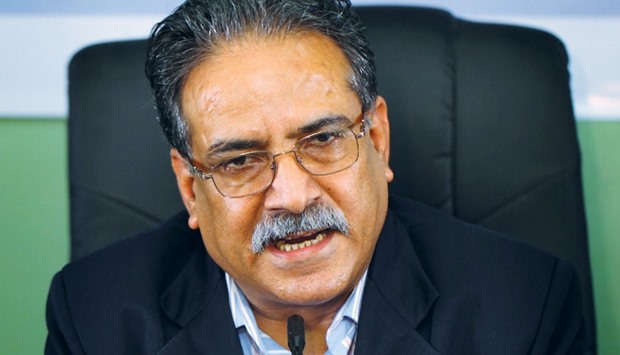Nepal’s new Prime Minister Pushpa Kamal Dahal is a former Maoist revolutionary whose first term in office ended after just nine months when he tried to sack the head of the army.
The 61-year-old - better known by his nom-de-guerre Prachanda (“the fierce one”) - spent years hiding in Nepal’s jungles, directing a guerrilla war against the state that ended with a 2006 peace deal.
He became prime minister after turning his rebel movement into a political party and winning elections in 2008, and oversaw the abolition of a centuries-old feudal monarchy - one of the key aims of the revolution.
But he resigned just nine months later after the president blocked his government’s efforts to sack the head of the army in a row over the integration of former Maoist fighters.
“Last time, I was inexperienced in the ways of competitive democracy. We still had a war mindset from the insurgency years,” he told the Hindustan Times daily in a recent interview.
“Now, after 10 years in open politics, I have learnt the rules of competitive democracy.”
The Maoists are only the third largest party in parliament, with 80 out of 575 seats, having lost ground in the last election.
Many blamed Prachanda, saying he had alienated supporters with his extravagant lifestyle, including a sprawling bungalow in the heart of Kathmandu and a reported fondness for expensive imported whisky.
“His agenda was very combative... He alienated and antagonised very important institutions,” said Aditya Adhikari, author and expert on the Maoist movement.
Experts say Prachanda has displayed greater willingness to compromise in recent years, joining hands with more conservative forces, including a royalist party, to secure political power.
He leveraged the third-largest party’s role as kingmaker to secure a comeback as prime minister, backing the Nepali Congress to form the next government.
Prachanda was born a Brahmin - the highest Hindu caste - but his family was poor and he spent his childhood herding goats and buffalo.
The extreme poverty he witnessed firsthand in rural Nepal spurred an interest in far-left ideologies and he joined a communist party in 1980 at the age of 25.
He worked as a teacher, but gradually grew convinced that an armed insurgency was the only way to bring radical change to one of the world’s poorest countries.
Inspired by China’s Cultural Revolution, he launched the ‘People’s War’ in 1996, recruiting thousands of youngsters, including children, into his Maoist army.
The insurgency brought the Nepali state to its knees as the Maoists secured control of large swathes of countryside, eventually translating their support into a massive electoral victory in 2008.
But many former guerrillas have quit the party in recent years, accusing Prachanda and other leaders of abandoning revolutionary ideals and betraying their sacrifices.
In May he joined with hardline Maoist splinter groups to form a new political party and strengthen his hand, withdrawing his party’s support from the coalition government shortly
afterwards.
Although his base appears to be stronger, analysts say he will now face the tougher task of reaching out to the opposition, including smaller parties angered by the Himalayan nation’s new constitution adopted
last September.
Prachanda will also have to mend ties with powerful neighbour India, which has repeatedly urged Kathmandu to resolve the impasse over the constitution.
India made its disapproval of the charter clear, and Kathmandu accused New Delhi of backing protesters who blockaded the border between the two neighbours and cut off supplies in protest.
Prachanda’s first tenure as prime minister ended because of a clumsy bid to transform the Nepali state and he will now need to rely on his diplomatic skills at home and overseas to make a success of his second term, said author Adhikari.

Pushpa Kamal Dahal ‘Prachanda’ speaking during a news conference in Kathmandu.
